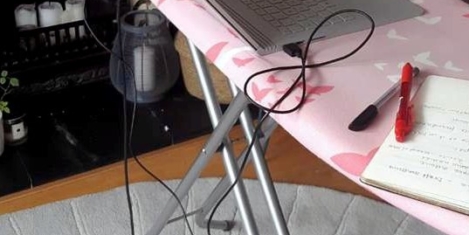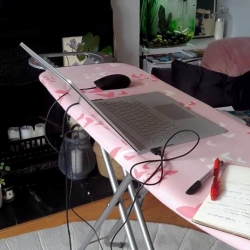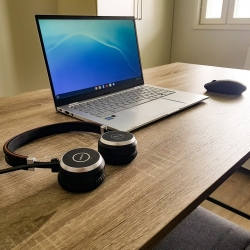To provide the best experiences, we use technologies like cookies to store and/or access device information. Consenting to these technologies will allow us to process data such as browsing behaviour or unique IDs on this site. Not consenting or withdrawing consent, may adversely affect certain features and functions.
The technical storage or access is strictly necessary for the legitimate purpose of enabling the use of a specific service explicitly requested by the subscriber or user, or for the sole purpose of carrying out the transmission of a communication over an electronic communications network.
The technical storage or access is necessary for the legitimate purpose of storing preferences that are not requested by the subscriber or user.
The technical storage or access that is used exclusively for statistical purposes.
The technical storage or access that is used exclusively for anonymous statistical purposes. Without a subpoena, voluntary compliance on the part of your Internet Service Provider, or additional records from a third party, information stored or retrieved for this purpose alone cannot usually be used to identify you.
The technical storage or access is required to create user profiles to send advertising, or to track the user on a website or across several websites for similar marketing purposes.
 Skills have become the new currency of workforce and talent strategies, as more than half of organisations that responded to the 2021 Mercer Global Talent Trends survey are targeting upskilling and reskilling of critical talent pools to drive workforce transformation. (more…)
Skills have become the new currency of workforce and talent strategies, as more than half of organisations that responded to the 2021 Mercer Global Talent Trends survey are targeting upskilling and reskilling of critical talent pools to drive workforce transformation. (more…)






 Lockdown has meant the majority of UK office-based employees have taken up working from home arrangements over the last year, and it seems that many employers lack trust in their employees when they can’t physically see them. Last year
Lockdown has meant the majority of UK office-based employees have taken up working from home arrangements over the last year, and it seems that many employers lack trust in their employees when they can’t physically see them. Last year 
 New research by
New research by 
 Workers across the UK could return to offices faster than anticipated, according to a new RICS survey of facilities managers. According to the poll, a growing number of respondents say that up to 80 percent of employees will head back once the pandemic is resolved. This is up from less than 60 percent expected in the same poll from the previous quarter ending November 2020. As evidence suggests the UK vaccination programme is taking hold across the country, results to the
Workers across the UK could return to offices faster than anticipated, according to a new RICS survey of facilities managers. According to the poll, a growing number of respondents say that up to 80 percent of employees will head back once the pandemic is resolved. This is up from less than 60 percent expected in the same poll from the previous quarter ending November 2020. As evidence suggests the UK vaccination programme is taking hold across the country, results to the 
 Remote work, rapidly accelerated by the pandemic, is now essential to business success and worker productivity. However, as parts of the world open up and hybrid work becomes a reality, research claims that companies must invest in establishing flexible work policies and programs, and address a sizeable disconnect in trust between decision makers and employees, according to a Forrester study commissioned by
Remote work, rapidly accelerated by the pandemic, is now essential to business success and worker productivity. However, as parts of the world open up and hybrid work becomes a reality, research claims that companies must invest in establishing flexible work policies and programs, and address a sizeable disconnect in trust between decision makers and employees, according to a Forrester study commissioned by 


 A
A 
 New research by environmental charity
New research by environmental charity 
 More than six in ten UK managers have experienced burnout at work because of the COVID-19 pandemic, with a fifth considering quitting their job as a result, according to new research from
More than six in ten UK managers have experienced burnout at work because of the COVID-19 pandemic, with a fifth considering quitting their job as a result, according to new research from 
 A new report from KPMG suggests that half of major corporations do not expect to see a return to any sort of ‘normality’ until 2022 when half of the general population has been vaccinated. The report also claims that there has been a steep decline in the appetite of the global executives who took part in the survey for office downsizing as the firms reconsider the need for in-person business to resume when countries emerge from the pandemic.
A new report from KPMG suggests that half of major corporations do not expect to see a return to any sort of ‘normality’ until 2022 when half of the general population has been vaccinated. The report also claims that there has been a steep decline in the appetite of the global executives who took part in the survey for office downsizing as the firms reconsider the need for in-person business to resume when countries emerge from the pandemic. 
 A survey by
A survey by 







April 7, 2021
The binary choices and multiple outcomes of flexible working
by Mark Eltringham • Comment, Flexible working